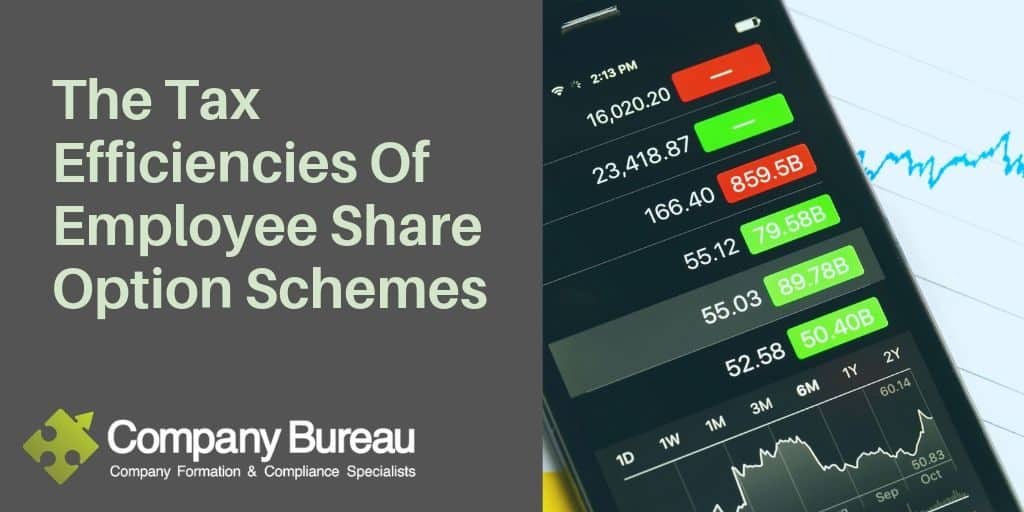Blog
Tax Efficient Employee Share Option Schemes
By Caitlyn Buchanan, 22 May 2019
Employee share option schemes can be utilised by Irish businesses as part of their employee benefits package. When employees exercise an option on shares in a company they are normally subjected to income tax, PRSI or USC at the date of exercise. While some share incentive schemes are described as ‘tax free’ or ‘tax efficient’ there are few benefits employees can receive that are completely tax free. This blog reviews the tax efficiencies of the various share incentive schemes that companies can offer their employees.
What are Employee Share Options?
An Employee Share Option is when an employer gives employees the right to acquire company shares either at no cost or a set price over a certain period of time. Both publicly traded companies and private companies can offer employee stock options using their own share incentive schemes. For a public company, the sale price is typically set at the stock market value at the time the option is granted but can be lower or higher depending on the option type. For private companies, the share options are typically based on the share price set in the most recent round of funding. Employees have an opportunity to benefit from exercising these share options at a future date.
The 3 main share schemes that employers can offer their employees are:
- Approved Profit Sharing Schemes (APSS)
- Save As You Earn (SAYE) Share Option Scheme
- Key Employee Engagement Programme (KEEP)
1. Approved Profit Sharing Scheme (APSS)
If an employer issues free shares to an employee, they are normally taxable. However, an employer may allocate shares with an Approved Profit Sharing Scheme (APSS) which are Income Tax free provided they meet certain conditions. Employees are required to pay Universal Social Charge (USC) and Pay Related Social Insurance (PRSI) on the value of the shares when using an APSS. In many cases, an employer may allow an employee to use their annual bonus to buy shares under this approved scheme.
An approved profit sharing scheme will allow an employer to grant company shares to an employee that are Income Tax free up to a maximum value of €12,700 per year. Profit Sharing Schemes are subject to certain conditions that are set out in legislation and administered by the Revenue Commissioners. The two main conditions are:
- The employer must hold the shares for a period of time (this is known as a retention period); and
- The employee must hold the shares for a period of three years (this is known as the release date).
If an employee disposes of shares before three years, they will be liable to pay Income Tax on whichever of the following is the lower:
- The market value of the shares when they were given; or
- The value of the shares at the time of sale.
Approved Profit Sharing Schemes are subject to the approval of the Revenue Commissioners, more details on how to schemes operate and the various criteria can be found on the Revenue website.
2. Save As You Earn (SAYE) Share Option Scheme
Revenue approved Save As You Earn (SAYE) and other savings related share option schemes allow employees to save for and purchase share options in their employer’s company. Savings related share options schemes are Income Tax exempt only if the employee does not exercise the share options within the first three years of receiving them.
The main features of this scheme include:
- Revenue approval is required prior to setting up a savings related share option scheme.
- The company must engage the services of an approved savings carrier.
- The costs of establishing an approved SAYE scheme are deductible when calculating the company’s profits for corporation tax purposes.
Employee participation in this scheme is voluntary. Employees have the option to save between €12 and €500 per month. The employer can offer a three, five or seven year savings contract and deduct the monthly savings from the employee’s net salary. The savings must be deposited within an approved bank or saving institution. Once the savings period is complete the employee has the option to buy company shares at the price set by the employer prior to when saves commenced. The employer can sell the shares at a discount of up to 25% of the market value. If the employee chooses not to purchase shares the bank or savings institution will return to the savings to the employee.
3. Key Employee Engagement Programme (KEEP)
The Key Employee Engagement Programme was introduced in January 2018 to assist SME companies to retain key staff through the award of share options. Any gains arising from this share incentive scheme will not be subject to income tax, PRSI or USC at the date of exercise. The gain will instead be subject to Capital Gains Tax on a future disposal of the shares.
Finance Bill 2018 was commenced by the Minister for Finance and signed into law on 19th December 2018 implementing the following updates to make the scheme less restrictive:
- The total market value of shares over which options can be granted increased from 50% to 100% of an employee’s annual emoluments in the year.
- The maximum market value of grant options over shares increased from €250,000 to €300,000.
This incentive is available for qualifying share options granted between 1 January 2018 and 31 December 2023. Follow this link for more information on the Key Employee Engagement Programme.
If you have any questions about employee stock options of the various options covered in this article, please don’t hesitate to contact our office on +353 (0)1 6461625 or email formations@companybureau.ie.



